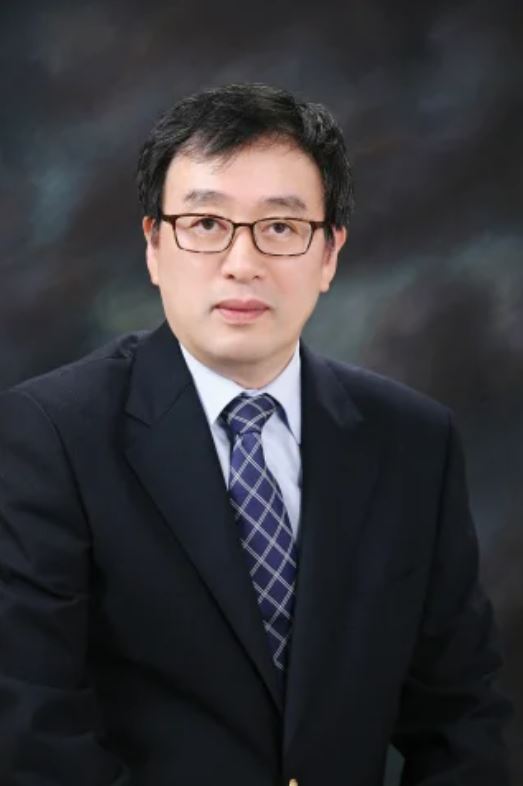This interview is the final installment in a three-part series of conversations with former directors of the Korea Centers for Disease Control and Prevention -- now the Korea Disease Control and Prevention Agency -- as the country looks back on a year of the COVID-19 pandemic. -- Ed.The novel coronavirus crisis shows that social inequities are a public health matter, and that bridging the gaps should be among the country’s post-pandemic goals, says former director of the Korea Centers for Disease Control and Prevention Dr. Lee Jong-koo.
COVID-19 is hardly Lee’s first epidemic. Throughout his over 30-year career in public health, he played a key role in the country’s response to infectious disease outbreaks from severe acute respiratory syndrome to swine flu to Middle East respiratory syndrome.
In February last year, he visited China as a part of a joint mission launched by the World Health Organization to investigate the outbreak and determine the next steps in containment and surveillance measures.
“Korea proved to be efficient in testing, isolating patients and tracing their contacts -- it’s the standard methodology of responding to infectious diseases. The public was also quick to adopt behavior changes that are now deemed customary, such as face mask-wearing and frequent hand-washing,” he said in a phone interview with The Korea Herald.
“But what is regrettable is our lack of a social security net and assistance for those in need, which sometimes worked to hold back the necessary curbs from being implemented in time.”
Lee, who was a public health adviser within the government committee on the post-COVID-19 recovery last year, said one of the things that Korea can work on after the pandemic is building stronger social welfare systems.
“Korea never locked down, and we like to take pride in that fact. But it is more accurate to say Korea couldn’t afford to lock down,” he said.
“The many small businesses that have had to close or faced disruption in operation as a result of the social distancing policy weren’t as well compensated, especially compared to other countries. A lockdown would have necessitated far greater government spending.”
He said that over the past year, the COVID-19 crisis has taken a disproportionate toll on vulnerable groups, and that it “would not make sense public health-wise to leave them behind.”
“Some -- people without paid sick leave or access to good health care, people living in poor quality housing -- are at higher risks of exposure than others,” he said.
“Without addressing these inequities, a holistic response is almost impossible, because in a pandemic, when some of us are affected we are all affected.
“So bridging these gaps is not just a social or political issue, it’s a public health issue. Our recovery from the pandemic may depend on it.”
Lee said COVID-19 was a prelude to more public health emergencies in the future: “This isn’t the first pandemic of our lifetime, and won’t be the last.”
While he held the top post at the KCDC from 2007-2011, the H1N1 pandemic hit. Under his leadership, the country procured vaccines and treatments early on and exited the crisis relatively unscathed.
“SARS, or SARS-CoV-1, struck in 2003, and it has made a comeback in a new form 17 years later. Hopefully the current crisis serves as a lesson for us to invest in better preparedness.”
And for Korea, improving vaccine self-sufficiency is among the essential tasks for improving pandemic preparedness, he said.
“Korea should boost investments in research and development for vaccines and treatments so that it can respond quickly to the emerging needs,” he said. “Right now we are relying entirely on exports for our supply of COVID-19 vaccines. But what if we need more next year and the year after that? Overseas production could also be a cause for delays in delivery.”
He said that once vaccinations kick off, the virus may evolve more rapidly through natural selection.
“What worries me is the possibility that the current vaccines and monoclonal antibody therapies may offer less protection against new variants. Even if the shots can be modified to target the mutations, another round of trials may be necessary for approval,” he said.
To keep up with the evolving virus, there should be ramped-up monitoring at the border and in communities across the country through genetic sequencing, he added.
Once vaccines start arriving, getting them into people’s arms will be “immensely complicated.”
“The COVID-19 immunization plan is like none other we’ve experienced in that storage, handling, packaging, expiry, preparations for the administration and scheduling of doses differ for each of the vaccines. It will require careful, thorough planning to avoid confusion and potential errors,” he said.
As the immunization efforts proceed, social distancing and all the other steps that are now being taken will have to be maintained simultaneously. “We are facing a tough year ahead. It’s going to be a double work of carrying out vaccinations while at the same time controlling the spread,” he said.
In the meantime, preventing outbreaks among the elderly and medically frail is “our utmost priority,” he said. “The fact that we are still seeing recurring outbreaks at nursing homes and locked wards one year on is a major policy failure.”
He said transparent and responsible public communication is at the core of a successful response to COVID-19.
“Science has to be the basis of pandemic policymaking, and not politics. Politicization of the crisis will distract us from focusing on what’s at stake, drive divisiveness of our society, and silence scientists from saying the things that need to be said.”
By Kim Arin (
arin@heraldcorp.com)








![[Today’s K-pop] Blackpink’s Jennie, Lisa invited to Coachella as solo acts](http://res.heraldm.com/phpwas/restmb_idxmake.php?idx=644&simg=/content/image/2024/11/21/20241121050099_0.jpg)